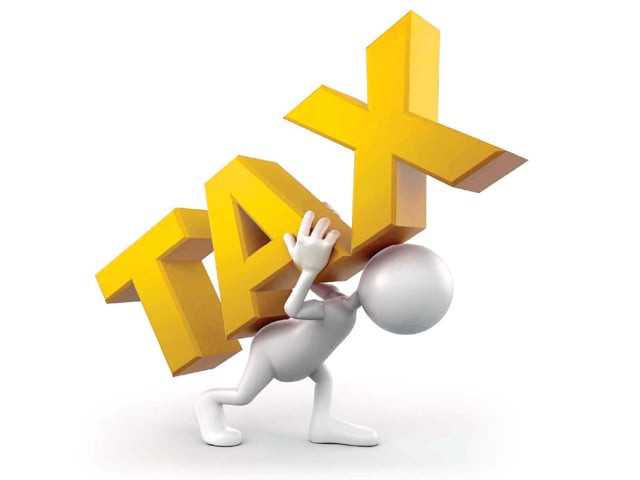Budget 2012: RAC endorses tax on defence procurement
Two new measures likely to result in Rs18 billion in additional revenues.

The Revenue Advisory Council, the country’s highest tax policy-making body, has endorsed a plan to tax domestic defence procurements and withdrawing gas subsidies, capturing erstwhile ‘sacred cows’ into the tax net as the government desperately struggles to find measures to lower the budget deficit for the fiscal year 2012.
The two measures combined are expected to yield an additional Rs18 billion in additional revenues, sources privy to the RAC’s deliberations told The Express Tribune. The government has already briefed the International Monetary Fund on its plans to introduce these two measures.
The government expects to generate Rs10 billion in the coming fiscal year by taxing defence procurement, though officials at the Federal Board of Revenues said they were unsure how the military would respond to a tax that affects their logistics.
The government will also eliminate the cross subsidy on gas, a program under which certain industrial units are made to pay higher prices that are then passed on to domestic consumers and other favoured industries, such as fertilisers, which rely on gas as a raw material for their manufacturing process.
“There is no rationale of giving cross subsidies on fertilizer”, said a member of the RAC. The measure is expected to result in an additional Rs8 billion in revenues for the government.
The RAC also endorsed the Federal Board of Revenue’s request for a tax collection target of Rs1,900 for the fiscal year ending June 30, 2012, lower than the Rs1,952 billion that had been initially proposed.
Yet even as the government reduce the target for federal tax collection, it asked the provinces to step up their collection efforts. The RAC has advised the government to coordinate with the provinces to urge them to generate up to Rs200 billion in provincial taxes next year.
“After the 18th amendment, there is no more space available in the federal tax policy and that now requires significant efforts at the provincial level,” said Dr Hafiz Pasha, chairman of the RAC and a former federal finance minister.
Pasha signalled that the government should focus not on increasing tax rates but on closing loopholes to broaden the tax net and go after evaders. FBR officials estimate that, for every Rs100 they collect in taxes, they miss another Rs73 due to tax evasion.
“Signalling tax equity — the increase in tax rates should not be based to generate revenue instead we will support broad basing and anti-evasion drive to generate revenues,” said Pasha.
As the government searches for ways to restrict its fiscal deficit to less than 4% of the total size of the economy (about Rs856 billion), it is forced to look at revenues since many of its expenditures are non-discretionary, such as debt servicing, or those that it cannot reduce, such as defence spending. Much of the government’s expenditure reduction strategy involves reducing untargeted subsidies.
The RAC has told the authorities that they would not be able to achieve the target without netting in the 700,600 tax evaders already identified by the FBR and plugging in other leaks in the tax collection system.
Achieving next year’s revenue collection also depends upon the growth in the industrial sector, according to RAC members, especially since the federal government is not allowed to tax services and the agriculture sector under the changes to the constitution through the 18th amdendment.
The RAC also disagreed with the government’s formula for setting targets, which essentially uses the previous year’s collection as a baseline and then adds inflation and the GDP growth rate.
On the income tax side, the RAC again proposed the government to levy the minimum asset tax on both moveable and immovable property. The federal government is hesitant to levy this tax by arguing that immovable property is a provincial subject.
But the RAC has identified a grey area – rental property income, which is a federal subject and can be used as a tool to convince the provinces. According to the RAC assessments the government can generate up to Rs23 billion from the MAT.
The RAC opposed increasing withholding tax rate on commercial electricity consumers on the pretext that the government has already committed with the IMF to increase electricity tariffs next year and doubling the WHT rate would be double-jeopardy.
The RAC and the government also agreed not to increase tax rates on cigarettes and discussed the possibility of reducing rates, as last year’s increase has resulted in revenue losses.
Published in The Express Tribune, May 24th, 2011.



















COMMENTS
Comments are moderated and generally will be posted if they are on-topic and not abusive.
For more information, please see our Comments FAQ